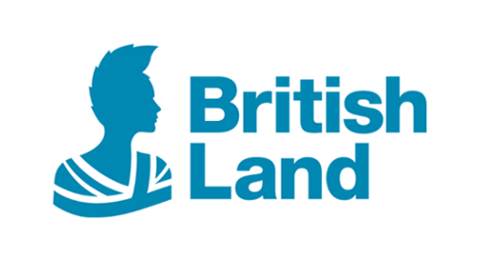As we delve into the data for this year’s sustainability reporting, it’s a timely moment to reflect on its value – for our occupiers, investors, local authorities and our own team.
There are two main benefits to robust sustainability reporting. Firstly, from a risk management perspective, good reporting provides evidence that a company is behaving responsibly, monitoring their environmental impacts and social outcomes, and acting on what they find. Secondly, access to good data empowers decision making.
British Land is strong at reporting non-financial information and we’re happy to share our knowledge. So, if our occupiers are thinking differently about investing in their people or environment, we can provide them with information they can rely on for decisions. If they want to become a Living Wage Foundation employer, we can help them quickly understand the costs. If they want to become carbon neutral or set up an internal carbon budget, we can provide the data to make it happen.
Businesses that care about their people and the planet need to be based in buildings owned and managed by firms that share their values. Initiatives like our Supply Chain Charter make occupiers feel comfortable with the way our properties are managed; that we’re doing what’s right in terms of wellbeing, energy efficiency and recycling; that we’re paying team members fairly and making a positive difference locally; and that they can get the data if they need it.
We know that many of our occupiers, particularly in offices, are using the environmental information we provide through our building teams and service charge packs. They’re drawing on it in their own reporting and identifying opportunities to improve energy efficiency in their areas.
We’re also seeing interest from occupiers in our emerging data on wellbeing, as we look at measuring factors that affect underlying productivity, such as air quality and activity levels. This could be of real value to businesses enthusiastic to attract the best talent and ensure they perform to their potential.
For investors that want to invest in sustainable businesses, we also make the information they need available. We’ve been actively supporting the drive towards more comparable data between companies, working with industry organisations such as the European Public Real Estate Association (EPRA) and initiatives such as Global Real Estate Sustainability Benchmark (GRESB).
Local authorities are often keen to understand the socio-economic impacts of our activity in their areas. We support this through reviews exploring the impacts of our developments and properties on local jobs, on businesses and on community cohesion, e.g. at Meadowhall, Regent’s Place and Teesside.
Employees ask us about our social and environmental performance too. Almost two-thirds of Millennials want to work for a company that has a positive impact on the world. Statements about values and ethics don’t make the grade without meaningful numbers behind them. Again, the data empowers decision making, this time influencing whether someone chooses to work with us.
Our sustainability reporting really gives us insights, looking at risks across our business and supply chain. It also positions us well for initiatives like the Government’s Minimum Energy Efficiency Standards or Modern Slavery Act, as we already have the data at our fingertips.
Down the track, I believe there’ll be more interest from businesses in how their landlords act – whether they’re looking to lease new space or are long-term occupiers. I look forward to this and encourage our occupiers to talk to us about how we can support them.
This is a busy time of year, gathering data from across the portfolio, but it’s all definitely worthwhile. Thanks to everyone who is helping to empower decision making, for us and our stakeholders.
Our track record on reporting
British Land has been publicly reporting social, environmental and economic performance since 2002. Selected key data has been independently assured since 2008, so stakeholders can be confident it’s accurate. Our reporting meets the standards required by the Dow Jones Sustainability Index and, for those interested in real estate, we’ve reported in line with European Best Practice Recommendations for Sustainability Reporting ever since they were published in 2012 – winning five EPRA Gold Awards.
In June, we will publish our Annual Report and Accounts 2017, where we integrate economic, social and environmental information, and our Sustainability Accounts 2017, providing detailed data on our 2020 sustainability strategy performance.
www.britishland.com/sustainabilityreport
This article was originally published on the British Land website here.
